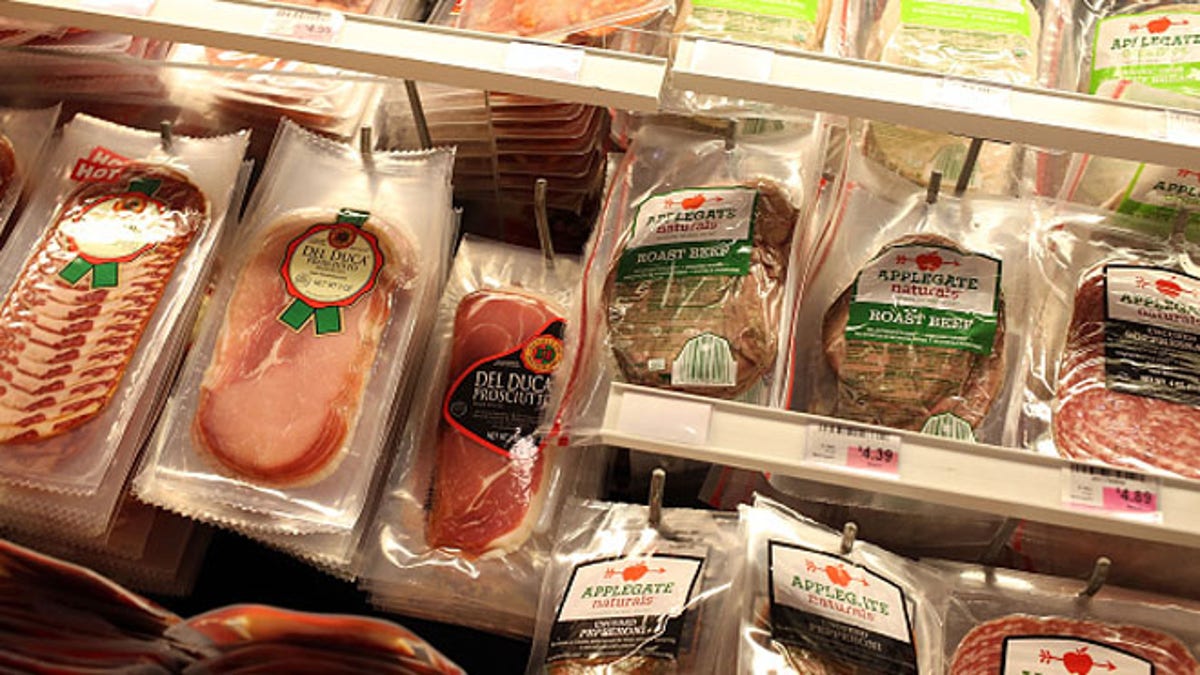
MIAMI, FL - OCTOBER 26: Processed meats are displayed in a grocery store on October 26, 2015 in Miami, Florida. A report released today by the World Health Organisation's International Agency for Research on Cancer announced that eating processed meat can lead to colorectal cancer in humans even as it remains a small chance but rises with the amount consumed. (Photo by Joe Raedle/Getty Images) (2015 Getty Images)
Latina meat lovers will need to begin re-thinking their diet according to a recent study led by the University Southern California.
The study found that Latinas who ate more than 20 grams of processed meats such as bacon, chorizo, sausage, ham, hot dogs and deli meats are 42 percent more likely to be diagnosed with breast cancer than white women who ate that much processed meat and Latinas who ate less.
The study was published in the journal “Cancer Causes and Control” in February of this year.
Mariana Stern, a USC associate professor and director of graduate programs in molecular epidemiology at the Keck School of Medicine, authored the paper.
“All these processed meats should be consumed like a treat, not the staple of your diet. The more we can understand, the better we can do to reduce our cancer risk,” Stern told Fox News Latino.
- Young Heart Patient Designs NIKE Shoe
- A Brazilian Village Where Residents Are Literally Melting Away
- Our American Dream: Lillian Rodriguez Lopez – A Champion for Latinos’ Rights
- Best Exercises for Him & Her
- U.S. surgeons perform miracles in cash-strapped Venezuela
- Some of Most Polluted Cities in the Country
- Providing Free Medical Care to Migrants
- Working Out with an Arm Bar
- Filthy Rio water threatens 2016 Olympics
- Princess for a day, hero for a lifetime
- Peruvians find a new cure-all for ailments: beach therapy
The cause of the higher numbers for Hispanic women will be the focus of future studies, Stern said, but the researchers suspect that Latinas ate more processed meat during adolescence, which could increase their risk later on in life.
She pointed out that most women do not get breast cancer due to genetics – only 5 to 10 percent of women carry the breast cancer gene.
“Diet and lifestyle play an important role. Things such as smoking, UV radiation, alcohol [and] processed meats can activate cells to become malignant,” Stern said.
The current diet recommendation for meat consumption suggests limiting red meat to 18 ounces per week (3oz per day = a small burger) and limiting processed meat to as little possible; including any meat that has been altered by adding chemicals, smoking to improve flavor or extend shelf life.
Stern, who has conducted research on meat intake, cancer and diet for nearly a decade, told Fox News Latino that the study harmonized data from two existing studies, one conducted in Northern California, the other in the “Four Corners” region – New Mexico, Arizona, Utah and Colorado. The studies included a total of 7,470 participants, ranging in age from 25 to 79.
The studies were conducted in the late 1990s and early 2000s using a case-control design, meaning that patients with breast cancer were enrolled in the study and asked questions about their lifestyles. Then women of similar races and ages who lived in the same area and did not have breast cancer were recruited as a control group.
In October, 2015, the World Health Organization (WHO) declared that processed meats are cancer-causing agents and increase people's risks for colorectal cancer.
The Argentine-born scientist was on a panel of 22 experts in Lyon, France, that produced the WHO report. The panel concluded that for every 50 grams of processed meat eaten daily, the risk of colorectal cancer is increased by 18 percent.








































